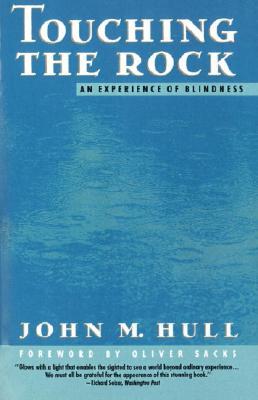Food for Thought 2018 - The Life-Sparring Books of the Year
2018 was a very quiet year for Life-Sparring.com. Life got simply in the way of the Sparring with visible consequences: only a very few long-form Life-Sparring Rounds and a bunch of shorter bits in the “Daily Jab” format.
To end the year a bit more active, I wanted to use the holidays to at least get two or three articles out before New Year’s Eve.
One of them follows the well-established tradition of the annual “Food for Thought” post. It would have been disappointing to break the streak as the list of my favorite books read in the outgoing year has been well received over the past few years.
While I struggled to write and publish in 2018, my reading volume was in line with the past three years. I might have finished only 19 titles, four short of last year’s 23 books, but the number of pages read was pretty similar (6,350 vs. 6,550 pages).
As in the previous years, this Top 5 list is compiled from the books I finished reading within the current year, disregarding when they were originally published. While some books on the list are new releases, others are decades old classics.
So, without further ado, let’s look at the Life-Sparring books of 2018:
5th Place: The Fifth Risk, Michael Lewis, 2018
With his writer superpower of producing non-fiction as captivating as a thriller, Michael Lewis remains one of my favorite authors.
The Fifth Risk, Lewis’ look behind the scene of the most chaotic and willfully ignorant US government transitions in history, is not his greatest book, but an important one, nevertheless.
“People who had lived without government were more likely to find meaning in it. On the other hand, people who had never experienced a collapsed state were slow to appreciate a state that had not yet collapsed.”
Visiting different government agencies, tracking the transition process from the Obama to the Trump administration, Lewis draws the picture of a government in complete disregard of science, data, and reason, focusing purely on ideology, headlines and short-term effects.
The US public voted (at least partially) for a populist, and the consequence is a political administration that reassembles a reality show.
While the soap opera of the white house might be somewhat amusing, the consequences of replacing science and reason with ideology might proof brutally destructive far beyond the borders of the United States.
4th Place: Fight Club, Chuck Palahniuk, 2005
You buy furniture. You tell yourself, this is the last sofa I will ever need in my life. Buy the sofa, then for a couple years you’re satisfied that no matter what goes wrong, at least you’ve got your sofa issue handled. Then the right set of dishes. Then the perfect bed. The drapes. The rug. Then you’re trapped in your lovely nest, and the things you used to own, now they own you.
Like most people, I had never read Chuck Palahniuk‘s Fight Club, I just saw the Brad Pitt/Ed Norton movie many years ago and loved it.
As I have a loose trigger finger on the “1-click” Amazon button, I accumulated quite a lot of discounted books over the past years. That’s also how Fight Club landed on my “to-read” list.
At heart and beyond all its shock value, Fight Club is a book about the search for a male identity more than anything else and as such it has aged remarkably well.
The “Fight Club” is the ultimate breakout from all conventions and constraints modern society puts on you, there are no limits and no conventions, adrenaline takes over, and life is reduced to its simplest layer, pure survival.
Most guys are at fight club because of something they’re too scared to fight. After a few fights, you’re afraid a lot less.
While I violently disagree with Tyler Durden, that “Maybe Self-Improvement is not the Answer. Maybe Self-Destruction is,” Life-Sparring is somewhat built around a similar understanding of the importance of finding challenges in life and not purely succumbing to a sedentary existence of a working robot.
Life-Sparring - the healthy alternative to the nihilistic destruction of the Fight Club!
3rd Place: Green Island: A novel, Shawna Yang Ryan, 2016
I always have been a sucker for historical fiction. Reading well-researched novels based on historical settings can go a long way of explaining how the world we are living in came about. As a big picture person, history for me is mainly about connecting the dots and understanding the Zeitgeist of a specific era.
Thanks to its political isolation, the story of Taiwan’s long-term military rule is not particularly well-known. While the plot of Green Island is not always fully credible, it does a pretty good job shining a light on the dark side of Taiwan’s post-WWII history.
Telling its story through the eyes of a single narrator makes Green Island also a very powerful warning of the devastating influence of any form of totalitarianism on individual lives.
In any totalitarian regime, independently of its ideological justification or political color, a single life does not matter. Saying the wrong thing at the wrong time can ruin not just your own but also the lives of people you love and admire.
Even if you are not interested in the history of Taiwan, read the book just for this message.
2nd Place: Touching the Rock: An Experience of Blindness, John M. Hull, 1992
Touching the Rock spend a good few years on my “to-read list” after I picked up the recommendation listening to a podcast (possibly an early edition of the Tim Ferriss Show).
That I didn’t read the book earlier was more due to practical reasons. The book is not available as an eBook, so I had to order a used hardcover from the US.
If you are not touched my John Hull’s journey into complete blindness, you possibly are a rock yourself. Hull’s diary is written calmly and without bitterness yet does not spare the desperation faced by a person slowly losing one of his most important senses.
Hull’s description of his adjustments to life in blindness give you a complete new perspective on your own seeing existence.
Have you ever imagined how it would feel to lose the visual memories of your loved ones without the ability to refresh them?
1st Place: Capital in the Twenty-First Century, Thomas Piketty, 2013
When the rate of return on capital exceeds the rate of growth of output and income, as it did in the nineteenth century and seems quite likely to do again in the twenty-first, capitalism automatically generates arbitrary and unsustainable inequalities that radically undermine the meritocratic values on which democratic societies are based.
I read to relax, but mainly I read because I believe in the power of books to broaden my horizon, to increase my understanding of the word and hence my ability to navigate through life more successfully.
I have a degree in economics, but even without a related academic background, Thomas Piketty’s Magnum Opus is not hard to read. However, that being that, reading any non-fiction book that is 814 pages long is for most people a massive project.
I usually read multiple books at the same time, so finishing Piketty’s Capital took me about nine months and was at times quite an effort. My record-setting 357 highlights in my Kindle are strong indicators though that the book was worth the investment of time and dedication.
At the core of Piketty’s analysis of capital, how it is accumulated and distributed, is the simple conclusion that whenever the return on capital is higher than the rate of economic growth, economic inequality will be rising.
In a time, where economic growth in “the West” is fairly anemic, this mathematical truth is powerful and explains not just the rising concentration of wealth, but also the increasing rebellion against the ruling establishment, from the election of Donald Trump, to the outcome of the Brexit Referendum and the recent Yellow Vest demonstrations in France.
I am at heart a European Liberal (a Libertarian with a heart in the US nomenclature), but maybe it takes a wealth tax to hold the scale in place, in the low-growth environment as we will likely to continue to experience?
What were your books of 2018? And what is your reading list of 2019? Follow me on Goodreads to see what I am reading and reviewing.
Not enough Food for thought? Find the postings of the past years here: Food For Thought 2017, Food For Thought 2016 & Food For Thought 2015.











